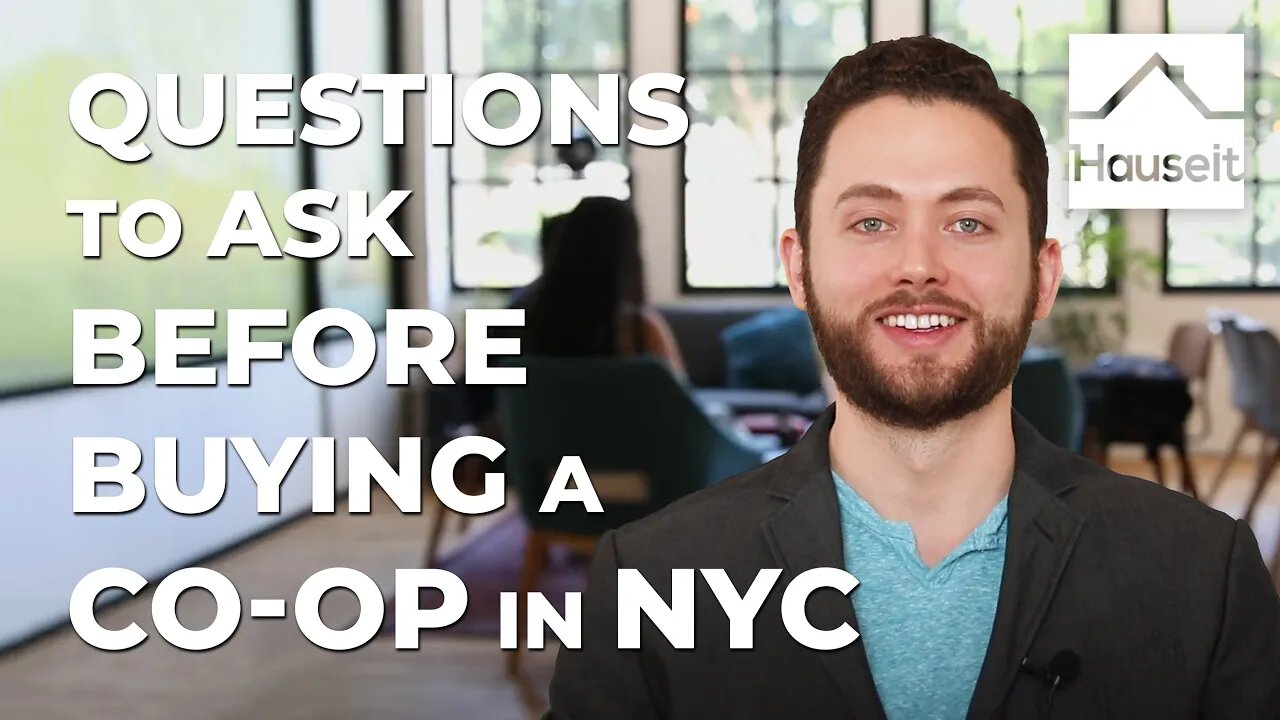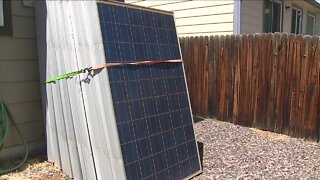Premium Only Content

Questions to Ask Before Buying a Co-op in NYC
Save 2% When Buying in NYC: https://www.hauseit.com/hauseit-buyer-closing-credit-nyc/
NYC Buyer Closing Cost Calculator: https://www.hauseit.com/closing-cost-calculator-for-buyer-nyc/
Questions to Ask Before Buying a Co-op in NYC: https://www.hauseit.com/questions-to-ask-when-buying-co-op-nyc/
What are the most important questions to ask when buying a co-op apartment in New York City We'll discuss the most important questions you should ask when buying a co-op in the following video. I'm Nick at Hauseit, visit our website https://www.hauseit.com to save money when buying or selling real estate here in New York City. So, let's get started.
What are the co-op's financial requirements? Co-op buildings in New York City have stricter financial requirements than mortgage lenders. This means that you might not qualify for a co-op even if you have no issue obtaining a loan from your bank. Failure to meet a co-op's financial requirements typically results in an immediate co-op board rejection and this means your deal will be cancelled and you'll have to start all over again. A typical co-op building in New York City requires buyers to have a debt to income ratio between 25% and 30%.
Now most co-ops in the city also require that applicants have at least 1 to 2 years’ worth of maintenance and mortgage payments available in liquid assets after closing and after paying your buyer closing costs. In addition, most co-ops also have minimum down payment requirements which are typically around 20%, in some cases they can be 30% or more. Co-ops also have various rules on gifting and proposed purchasing structures and uses of the apartment such as guarantors, parents buying for children or pied-a-tier usage.
How easy is it to sell apartments in the co-op? In addition to the co-op's financial requirements, the building may have other policies which will make it more difficult for you to sell your apartment in the future. For example, does your co-op building prohibit parents buying for children, co-purchasing, pied-a-tiers or guarantors, how about gifting? The more restrictions your building has the fewer number of buyers will be able to market to when it comes time to sell. Fewer buyers means less demand and perhaps the lower price.
Are open houses permitted? Some co-ops and condos prohibit open houses which means that it will be incredibly difficult for you to maximize foot traffic when selling your co-op. Now before buying into this type of building, ask yourself do you want to live in a co-op with strict rules based culture encourages neighbors or perhaps your own doorman to rat on you for holding open houses in a good-faith effort to sell your own home a very important question to ask.
Have there been any co-op board rejections recently? A building with a history of recurring board rejections is a serious red flag. It may suggest that the co-op board is delusional, out of touch, overly strict or outright discriminatory. So, before buying into a co-op you should make sure that there is a fluid history of resells in the building. Now here's a simple question: are the people at the front desk friendly checking the demeanor of the doorman is another way to see how you may be treated in the future when it comes time to sell. Is the doorman rude to visitors or does he or she behaved in a pretentious manner? If so, the doorman could be a reflection of the attitude of the residents and possibly foreshadow how they may treat you or your future buyer during a co-op board interview.
Is there a co-op flip tax? If so how much is it and is the buyer or seller responsible for paying it? While not all co-ops in New York City charge sellers of flip tax, a common flip tax amount is 1% to 3% of the sale price. Flip taxes come in many shapes and sizes which include a percentage of the sale price, a percentage of profits of per share amount or some combination of these methods. A co-op may also change its flip tax from time to time by holding a shareholder vote.
What is the sublet policy? Co-ops are less expensive than condos partly due to the fact that most co-ops have sublet restrictions which deter investors from buying them. A typical co-op sublet policy in New York City permits subletting 2 out of every 5 years after you've lived in the apartment for say 1 or 2 years. An example of an inflexible sublet policy would be if the building only permitted shareholders to sublet for say up to 2 years or perhaps just one year during the lifetime of ownership. Co-ops and some condos also charge monthly or annual sublet fees so you'll want to make sure your buildings fee structure is reasonable.
Save 2% When Buying in NYC: https://www.hauseit.com/hauseit-buyer-closing-credit-nyc/
NYC Buyer Closing Cost Calculator: https://www.hauseit.com/closing-cost-calculator-for-buyer-nyc/
.
.
Hauseit LLC, Licensed Real Estate Broker
Tel: (888) 494-8258 | https://www.hauseit.com
_
#hauseit #hauseitnyc
-
 0:48
0:48
KMGH
2 years agoDo your research before buying solar
15 -
 1:12
1:12
Broker Associate, LarryBroker.com
2 years agoVideo- What Questions To Ask Before Buying A House In This Hot Real Estate Market
1 -
 4:18
4:18
KJRH
2 years agoThe Crucial Questions When Buying a Used Car
3 -
 9:34
9:34
DayTradeToWin
2 years agoTrader Checklist - 4 Questions To Ask Before Entering A Trade
8 -
 26:04
26:04
The Beautiful Mess
2 years agoThink Twice Before Buying Your Coffee
694 -
 12:44
12:44
CigarsDaily
2 years ago $0.08 earnedWatch This Before Buying Cuban Cigars
49711 -
 9:34
9:34
DayTradeToWin
2 years agoTraders Checklist - 4 Questions To Ask Before Entering Into a Trade
8 -
 1:36:15
1:36:15
Glenn Greenwald
12 hours agoWhat Mark Zuckerberg’s New Misinfo Policy Means For Internet Freedom; The Disinformation Complex: Dismantled At Last? | SYSTEM UPDATE #384
129K123 -
 1:16:42
1:16:42
Adam Does Movies
16 hours ago $3.02 earnedHUGE Movies Releasing In 2025! + Movie News - LIVE!
37.7K3 -
 58:40
58:40
Flyover Conservatives
12 hours agoZuckerberg’s Shift: The Mar-a-Lago Effect or Strategic Realignment? - Clay Clark | FOC Show
37.3K4